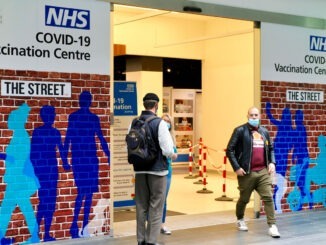
David Oliver, consultant in geriatrics and acute general medicine, discusses why Sajid Javid’s plans are unlikely to work
CREDIT: This is an edited version of an article that originally appeared on The BMJ
There’s a communications tactic in politics of ‘flying a kite’ where nascent policy proposals are strategically placed in sympathetic media outlets to start a discussion, gauge reaction, or soften us up in advance – they’re often dropped, or watered down, if they don’t land well. We also sometimes see diversionary ‘squirrel’ policy announcements, designed to distract the press and public from current government difficulties.
This January we saw both in the form of stories based on an ongoing internal review of the NHS commissioned by England’s health secretary, Sajid Javid. Firstly, a widely-repeated story in The Times described hospital models akin to academy chains in schools, operating as semi-autonomous entities. The Times then wrote of ‘GPs nationalised in Javid plan to reduce hospital admissions’. The leaked proto-plan was that GPs would be encouraged, or offered the chance, to move to salaried employment by hospital trusts (although not forced to).
Why? Because politicians believe that the independent, contractor, model of GP partnerships makes it harder for ministers to pull levers to deliver their performance objectives and that more direct line management would, somehow, help reduce pressure on hospitals. We’ll see if this particular kite is quietly shelved and whether this squirrel has legs; I think that it’s misguided and doomed to fail.
Changing GPs’ contractual arrangements won’t create more GPs. Since 2015 we’ve seen a slight fall in the number of full-time equivalent qualified GPs, while hospital consultant numbers have increased. During this time the GP workload has grown significantly; our GPs see far more daily patient contacts than their counterparts in comparable high-income nations.
The modest increase in the number of junior doctors entering GP vocational training schemes won’t compensate for the number of older GPs retiring, or stepping down their hours, because of burnout, worsening morale or a desire to restore some work-life balance. Workforce gaps are another major policy risk for Javid, but I’ve still to see a credible workforce plan.
I can’t see how new employers for some salaried GPs, or hospital takeovers of partnerships, would meaningfully affect pressures on hospital beds; acute admissions to beds relate to patients who, having been seen by specialists in emergency and acute medical specialties, are deemed sick enough to require hospital admission, or where no alternative community health and social care services are rapidly available.
The social and community healthcare crisis is another major problem for Javid – but also one with no solutions in sight. Reviews of the reasons for hospital admissions have shown numerous factors at play – well beyond general practice – and studies on whole system interventions to reduce admission have modest benefits at best. Yet some evidence suggests that continuity of primary care in helping people to live with long term conditions can modestly reduce acute illness episodes and demand. Making GPs work for hospital trusts won’t deliver this; adequately resourced and staffed general practice just might.
Many doctors chose a career in general practice partly because it did not involve being on the payroll of a large organisation. Hospitals’ expertise isn’t in primary care – that expertise lies with GPs.
And a GP’s role is far, far more than ‘keeping people away from hospital’.


Be the first to comment